Every Jane's Addiction album ranked from worst to best
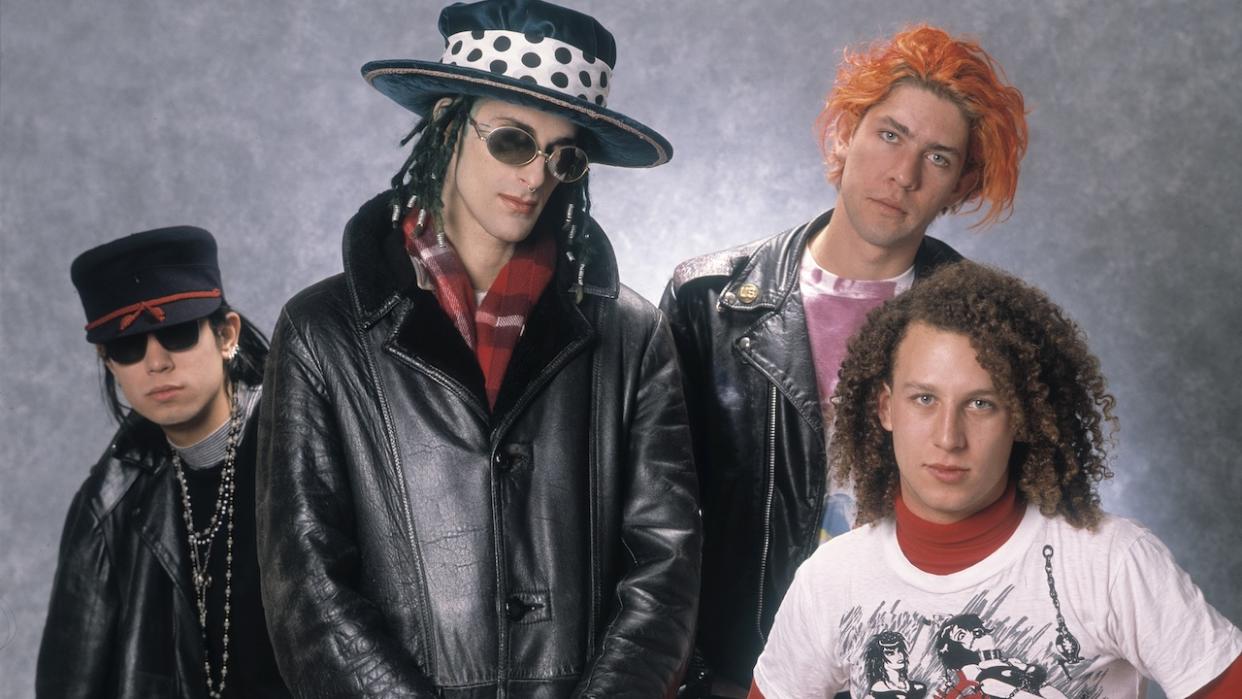
Jane’s Addiction were the pivot around which the 1980s turned into the 1990s. They emerged wild-eyed and wired from LA’s kaleidoscopic underground scene to spearhead the all-consuming alternative rock movement that would remodel the musical landscape. Other earlier bands had done the spadework, but Jane’s were the pharmaceutically fuelled pied pipers who led a parade of freaks, misfits and malcontents out of the shadows and into the light.
It was an unlikely of success story. Formed in 1985 by surfer-turned-gigolo-turned-singer Perry Farrell and bankrolled by a friend of the band who worked as a prostitute, they landed like corseted, nose-ringed alien deviants amid the Aquanet-choked glam scene of late 80s Hollywood. Their music was a mad-genius mix of goth strangeness, hard rock muscle and psychedelic woo-woo, simultaneously tribal and grandiose. Their name, inspired by Farrell’s heroin-addicted housemate, gave a clue to their own chemical predilections, which was pretty much anything and everything going.
The original line-up – the helium-voiced Farrell plus guitarist Dave Navarro, bassist Eric ‘A’ Avery and drummer Stephen Perkins – released just three albums during their initial run before going out in a blaze of narcotic glory with 1991’s game-changing Lollapalooza tour, the Farrell brainchild which did more than anything to centre ‘alternative’ music within mainstream culture. Subsequent reunions may not have had the magic of their dazzling original incarnation, but neither have they disgraced the band’s legacy.
Jane’s Addiction remain an on-off concern, sporadically returning to play live or drop a new album every decade (they’re reportedly working on one right now). Today, these former enfants terrible of the underground are remarkably undamaged by everything that that was thrown at them and that they threw at themselves, and admirably resisting both the lure of easy ‘I ?? The 90s’ nostalgia and the mojo-killing ‘elder statesmen’ title. Their five-album back catalogue may be slim, but at its best it remains unmatched.

5. Strays (2003)
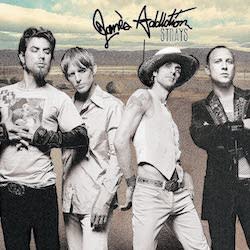
A brief reunion for a handful of live shows in 1997 aside, Jane’s Addiction sat out the 90s alt-rock movement they helped spark off. When they did get back together for their first album in 13 years, it was minus both original bassist Eric Avery and much of the smacked-out mystique that had made them so special in the first place.
Instead, Strays was a muscular post-millennial hard rock record made by a band who had swapped sunken cheeks and track marks for yoga and suntans - great for their physical well-being, less so for their creativity. Perry Farrell still sounds like no one else on earth and there are some absolute keepers upfront, not least the bullish title track and all-time great single Just Because. But this was a de-weirded Jane’s Addiction, as evinced by Wrong Girl and Suffer Some’s alarming proximity to funk rock. Not bad, just disappointingly normal.
4. The Great Escape Artist (2011)
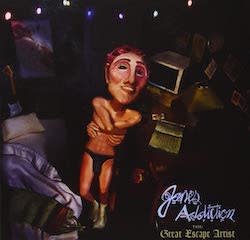
“I’m a hustler/I’ll never give up on the underground,” sings the 52-year-old Perry Farrell on Underground, the opening track on his band’s fifth album. It’s less disingenuous than it sounds. The Great Escape Artist marks a welcome return to darker, stranger territory after the sleek arena rock grandstanding of Strays.
The Farrell-created sculpture on the cover may evoke Ritual de lo Habitual’s iconic artwork, but the band and producer Dave Sitek (of New York art-rockers TV On The Radio) relocate their original maverick energy to the 2010s, adding subtle but distinct electronic textures to hypnotic first single End To The Lies and the post-punk-edged Twisted Tales. Elsewhere, Guns N’ Roses bassist Duff McKagan, who briefly replaced the still-absent Avery during the writing process, gets a credit on three tracks, most notably the punky closer Words Out Of My Mouth.
It’s a short album at 38 minutes, but one that exists in its own richly kaleidoscopic world, taking in everything from the toxic damage exacted by celebrity culture (Broken People) to the metaphysical beginnings of the universe (the sweeping Irresistible Force). Alt-rock’s tribal elders still had plenty to give.
3. Jane’s Addiction (1987)
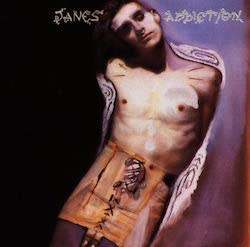
The cover of Jane’s Addiction’s debut album says it all: a corseted Perry Farrell, pallid and junkie thin, head tilted at a 90-degree angle to his body like a whacked-out marionette. It may have been recorded live at fabled Sunset Strip club The Roxy and released as LA’s glam metal scene was beginning to boil, but Poison it ain’t.
The swivel-eyed Trip Away and Whores (ill-advised ‘n’-bomb aside) are the sound of a band fully unfurling their freak flag. Early versions of Nothing’s Shocking tracks Pigs In Zen and Jane Says sound wired and jittery compared to their subsequent studio versions, but what they lack in polish they make up for in pure pharmaceutical energy.
Farrell is the dreadlocked high priest of this otherwordly communion, his kettle-whistle voice sounding like it had beamed in from another dimension on stripped-down covers of The Velvet Underground’s Rock’N’Roll and the Rolling Stones’ Sympathy For The Devil. Best of all is I Would For You, a ballad that pointed the way to Ritual de lo Habitual’s hazy narcotic soundscapes three years later.
Jane’s Addiction had already signed to Warner Bros, but the wily Farrell insisted it be released on hip indie label Triple X to whip up some underground credibility. It worked. This was Jane’s Addiction serving notice that a change was on the way.
2. Nothing’s Shocking (1988)
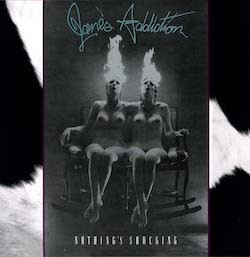
Jane’s Addiction’s first studio album was the sound of the 1990s arriving two years early. The drug-fuelled rush of their self-titled live debut hadn’t been polished so much as channelled, its rawer edges brought into pinprick focus.
Other bands had merged hard rock, pyschedelia, goth, metal and funk in different combinations before this, but no one had brought them together all at once. Nothing’s Shocking remains a whirlwind tour of underground culture circa 1988, pinballing from Ocean Size’s great, buffeting melody to Mountain Song’s tribal heavy metal pyschedelia to the abrasive funk-punk of Idiots Rule, the latter featuring Red Hot Chili Peppers bassist Flea on trumpet.
It wasn’t just JA’s sound that set them apart, it was what they sang about. Wired dub epic Ted, Just Admit It takes convicted serial killer Ted Bundy as a jumping off point to explore the relationship between sex and violence, while the steel-drum assisted Jane Says – inspired by Farrell’s artist friend/muse Jane Bainter – is a tender portrait of the junkie lifestyle by a band who knew it well. Nor were they afraid to provoke controversy. The album cover features a sculpture by Farrell of naked conjoined twins taken from a body cast of his girlfriend Casey Niccoli that predictably sent America’s major record store chains into conniptions.
In the era of radio-friendly rock and glossy MTV videos, Nothing’s Shocking was just too out there for some. But not so out there that it didn’t get a foothold in the lower reaches of the Billboard charts. The revolution was underway.
1. Ritual de lo Habitual (1990)
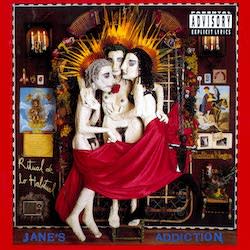
Not just the greatest Jane’s Addiction album, but one of the defining albums of a decade that was barely eight months old when it was released.
Ritual de lo Habitual was the culmination of everything Jane’s had been building to. Many of its songs dated back three or four years, and they had accumulated brilliance with time. Weird and wired, strange and beautiful, this was the sound of a band hauling themselves out of the darkness of the LA club scene and spiralling skywards into the light.
There’s a clear demarcation between the album’s first and second half. It’s front-loaded with songs that are funny, feral and frantic: the limbs-akimbo energy of Stop, defiant outsider-punk call-to-arms Ain’t No Right, immortal breakout single Been Caught Stealing, with instantly recognisable dog-bark intro (courtesy of Farrell’s rescue pooch Annie) and promo video that perfectly encapsulated the chaos the world Jane’s Addiction inhabited.
But it was Ritual’s second half where Jane’s put clear water between themselves and their peers. Three Days is the album’s glorious turning point, a shapeshifting, sexual/spiritual 10-minute meditation on the nature of life and death which stood as a tribute to by Farrell and Niccoli’s friend and sometime-lover Xiola Blue, who died of a heroin overdose in 1987 at the age of 18. Other bands would have left it there, but Ritual had more to give: the porcelain-delicate Then She Did… (inspired in part by Farrell’s mother, who died when he was three); the hypnotically slo-mo, klezmer-music inspired Of Course; the sparkling Classic Girl.
Ritual became the first ‘alternative’ record to sell a million copies in the US, inspiring a generation of bands who would ultimately kill the idea of ‘alternative’ stone dead. Jane’s Addiction themselves would never equal it. But then neither would anyone else.
